Community Impact
 Increasing Awareness of Technical-Based Career Pathways
Increasing Awareness of Technical-Based Career Pathways
Main Street Community Foundation’s Board of Directors is setting new directions in community leadership through the Foundation’s “Money in Motion” initiative. A subcommittee of the Board works in collaboration with Foundation staff to identify emerging community issues and develop collaborative solutions with essential community partners. The first issue selected by the Board was to increase awareness of technical-based career pathways in order to increase employment opportunities within the local community.
A MSCF Board subcommittee convened business owners and professional associations to gain an in-depth understanding of their needs and current initiatives in the area of technical-based education. The subcommittee also convened superintendents and other school representatives from all local school districts, as well as guidance and career counselors, to discuss current programs and future opportunities. All groups were in agreement that students have not been as exposed to careers in manufacturing and other technical fields as they could be.
Manufacturing companies are realizing that they cannot assume the educational or political systems will address the needs of the manufacturing industry to develop a skilled pool of candidates for entry level jobs, or train incumbent workers to learn more skills for advanced manufacturing careers. They are learning that they need to take responsibility for training and developing their own workforce.
Over the last 30 years, a conventional belief has developed that factories are dirty, smelly places no one should aspire to work in – and that a manufacturing job is a dead-end career. Technical education classes were cut from school budgets. The high school curriculum became focused on getting kids “college ready”, which does not suit the needs of all students. There was no longer a path for kids with incredible mechanical or technical skills to pursue a technical-based career if they were not able to attend college.
As low cost labor became readily available overseas, companies began to outsource manufacturing jobs in Asia, South America, and other places throughout the world. As companies reduced or ceased operations in the United States, high unemployment rates and a sharp reduction of tax revenues had a negative impact on the economy. Local communities suffered the consequences. The pool of skilled, American factory workers quickly began to shrink as they began to pursue earning opportunities in other industries.
However, the economic advantage of manufacturing overseas is rapidly decreasing. Wages have tripled and quadrupled in Asia, and there is a growing middle class that has higher expectations for earning potential and labor conditions. The cost of shipping to and from foreign countries is also steadily increasing. More significantly, the intellectual property rights are often ignored and patents are routinely violated. Companies pour a tremendous amount of time, effort, money, and labor into product research and development. There is often no legal resource when patent laws are broken in China, and American companies need to protect their investments.
U.S. manufacturers are realizing that maintaining their manufacturing base in the United States of America allows them to maintain much more control over their intellectual property rights, and to project and control the cost of doing business with greater accuracy. However, companies have discovered that they often do not have skilled candidates to fill the jobs that have been created – jobs that are necessary in order for companies to fulfill contracts and remain in business.
According to Michael Brault, Vice President of Operations at Ultimate Wireforms Inc, and a current Director and Money in Motion committee member at Main Street Community Foundation, “The paradigm that U.S. manufacturing is dead, is simply false and needs to be replaced with a new paradigm that accurately reflects today’s reality. Modern manufacturing companies are largely state of the art, very clean facilities that are heavily dependent on automation and computer technology. The people running the machines are highly skilled, competent, and valued workers. The average salary for skilled manufacturing jobs today is $76,000 to $80,000 per year, and the worker is not saddled with a $100,000 student loan debt.”
The projected impact of this leadership initiative is to:
- provide high quality technical education opportunities
- lower unemployment in our local communities
- fill jobs in critical industries that are experiencing shortages
- attract new businesses, diversify the state’s economy and expand the tax base
- enable local manufacturing businesses to be competitors in the global marketplace
By working together, community partners will put “money in motion” by enabling people to make money, invest money, and spend money in their local communities.





